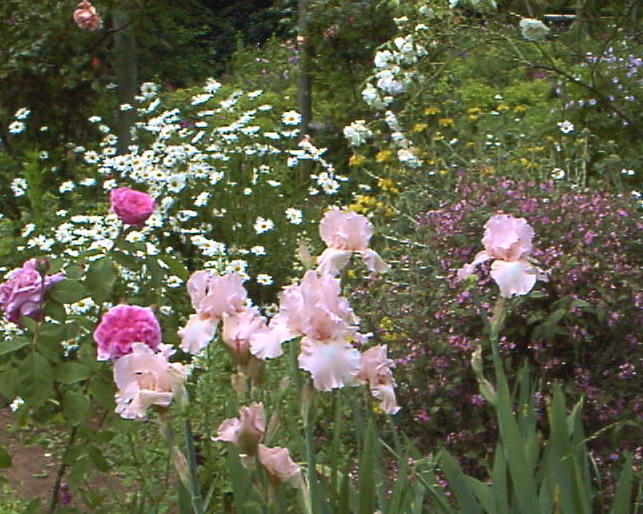| Botanical Name: Iris Bearded Hybrids | |
| Common Name: Bearded Iris |

-
Anatomy
-
Culture
-
Design
Plant Type
Perennial
Height Range
Under 1', 1-3'
Flower Color
Blue, Gold, Lavender, Orange, Pink, Purple, Red, Yellow, Violet, White, Multi-Colored
Flower Season
Spring, Summer
Leaf Color
Green, Blue Green, Grey Green
Bark Color
n/a
Fruit Color
n/a
Fruit Season
n/a
Sun
Full, Half
Water
Low, Medium
Growth Rate
Moderate
Soil Type
Sandy, Clay, Loam, Rocky, Unparticular
Soil Condition
Average, Rich, Poor, Well-drained, Dry
Soil pH
Neutral
Adverse Factors
n/a
Design Styles
English Cottage, Formal, Japanese, Meadow, Mediterranean, Ranch, Spanish, Tropical
Accenting Features
Fragrance, Showy Flowers
Seasonal Interest
Spring, Summer
Location Uses
Entry, Perennial Border, Shrub Border, Foundation, Parking Strip, Patio, Raised Planter, Walls / Fences, Walkways
Special Uses
Cut Flowers, Naturalizing, Small Spaces
Attracts Wildlife
n/a
Photographer: Linda Engstrom/Mullany
-
Description
-
Notes